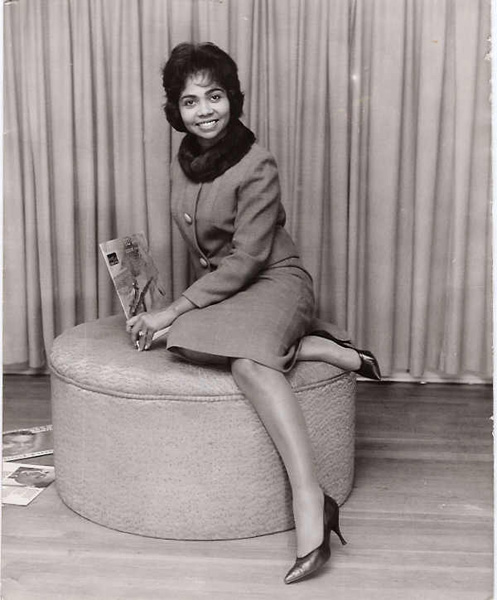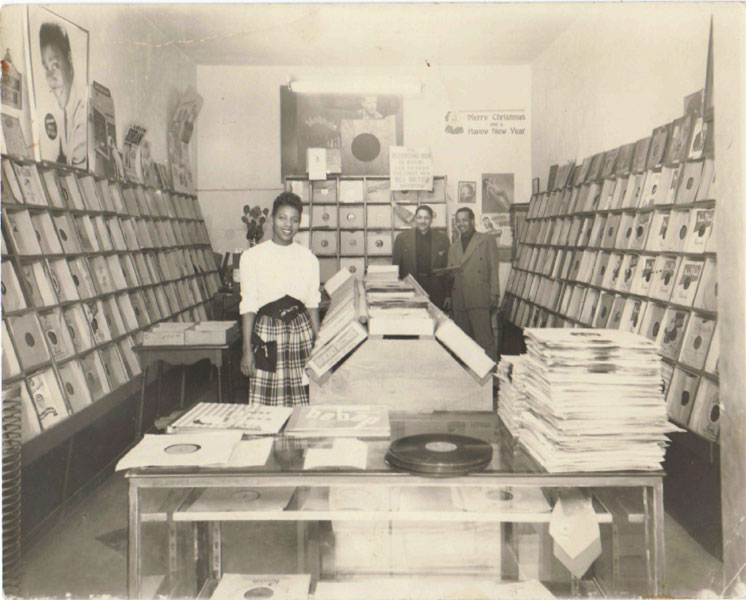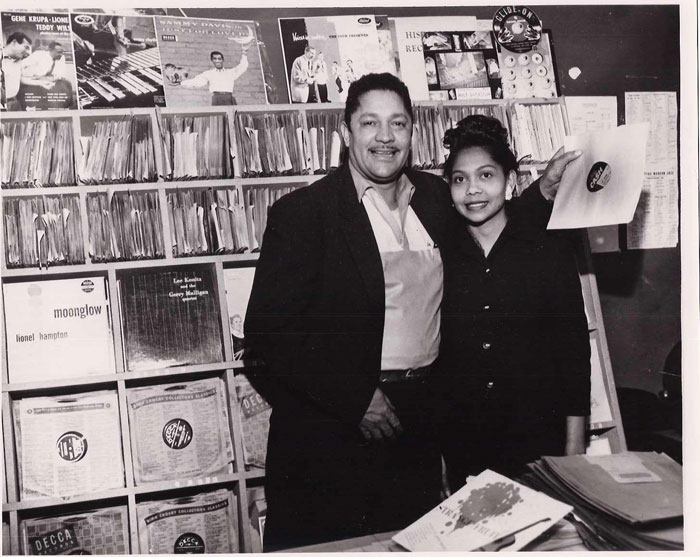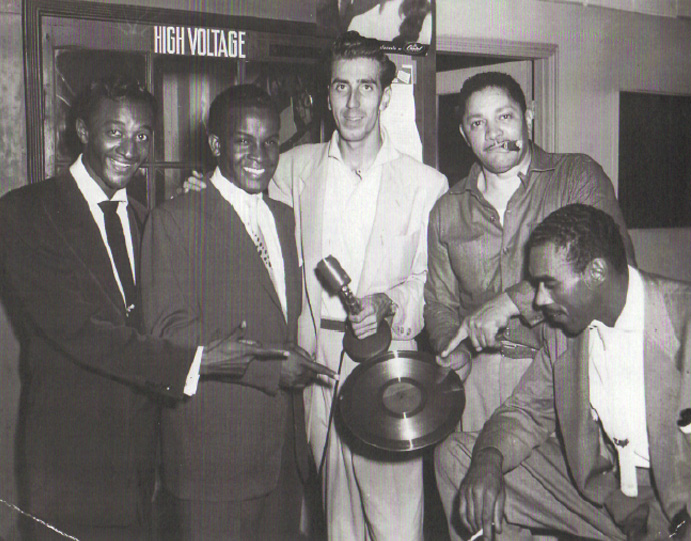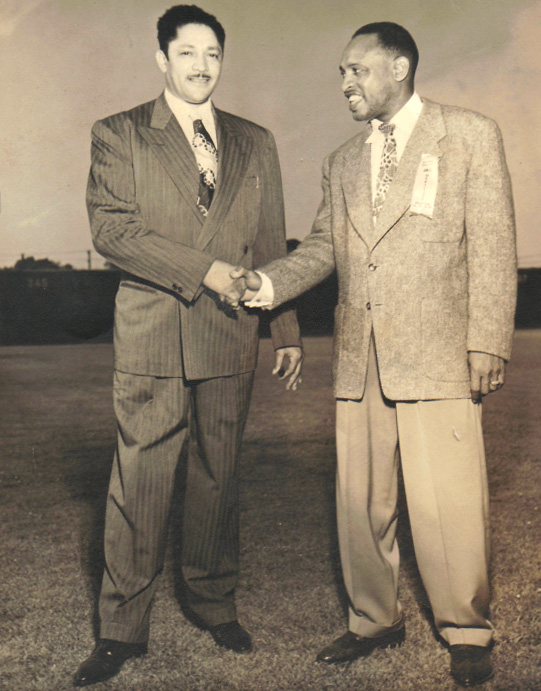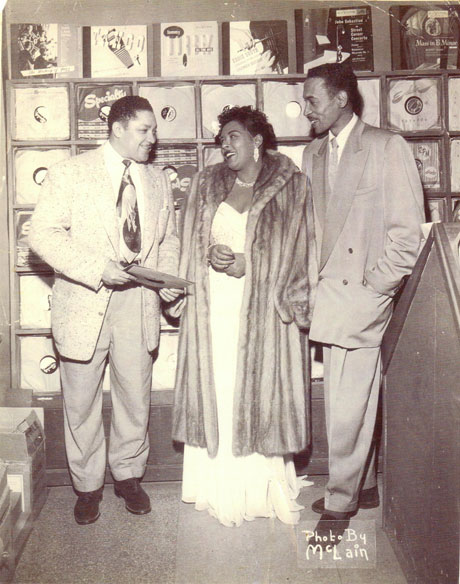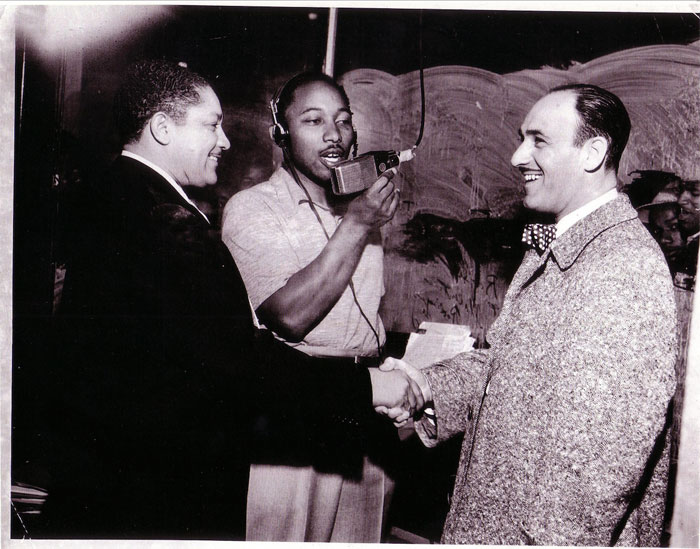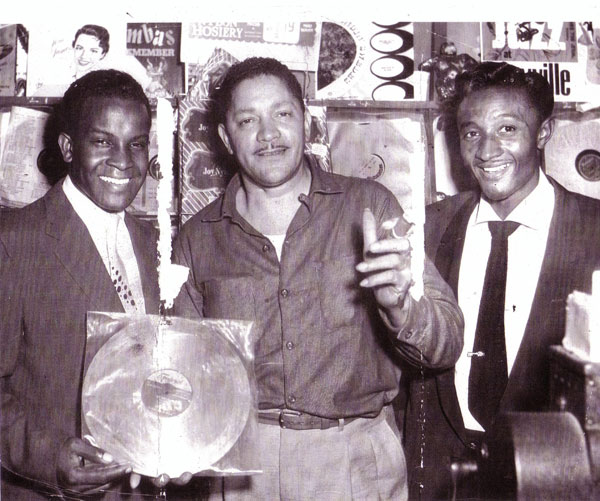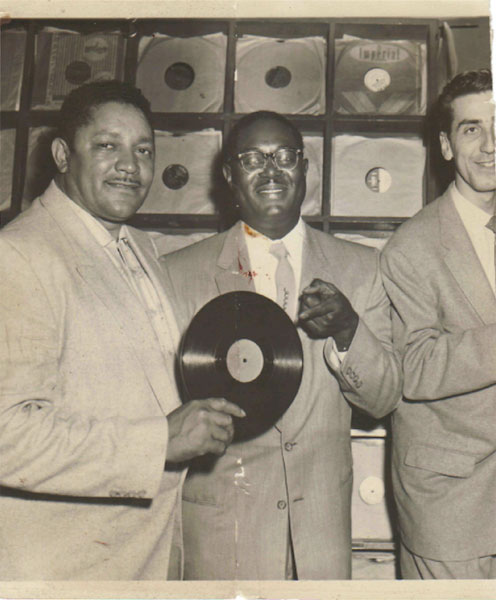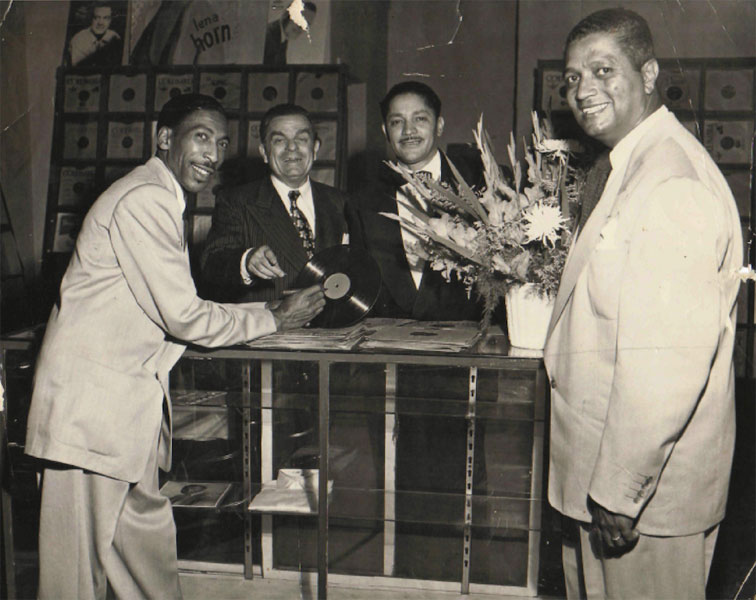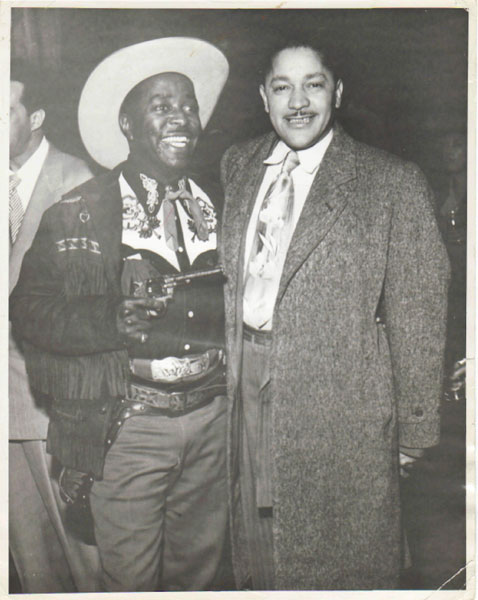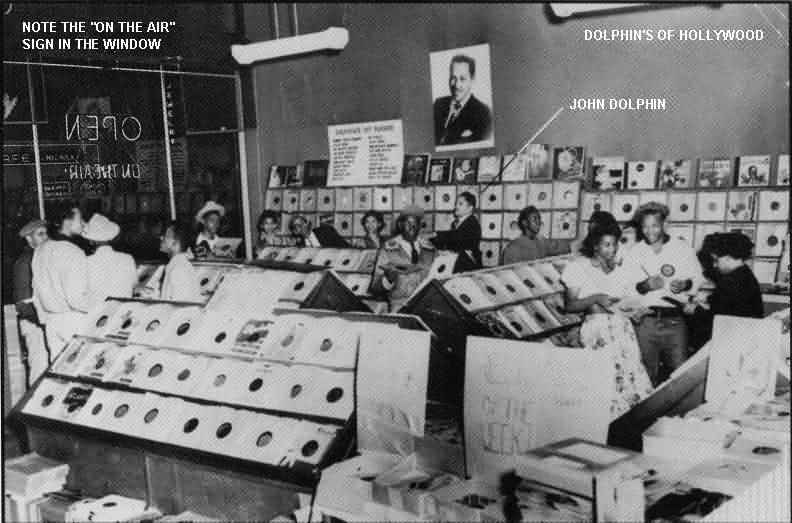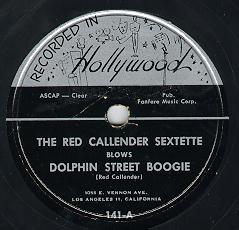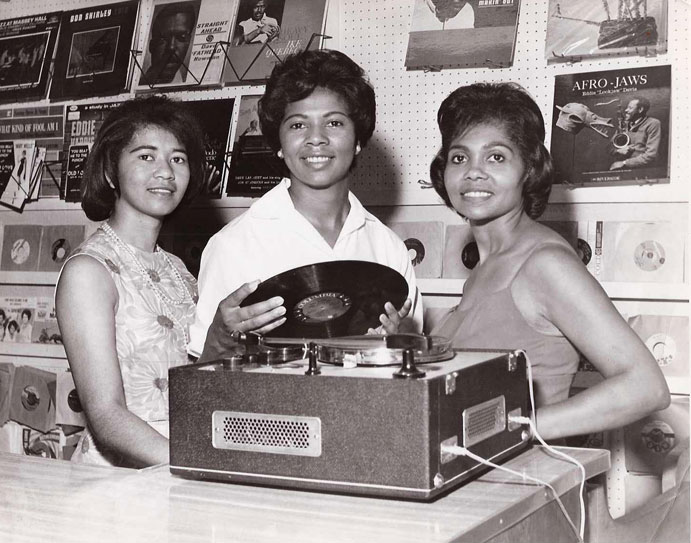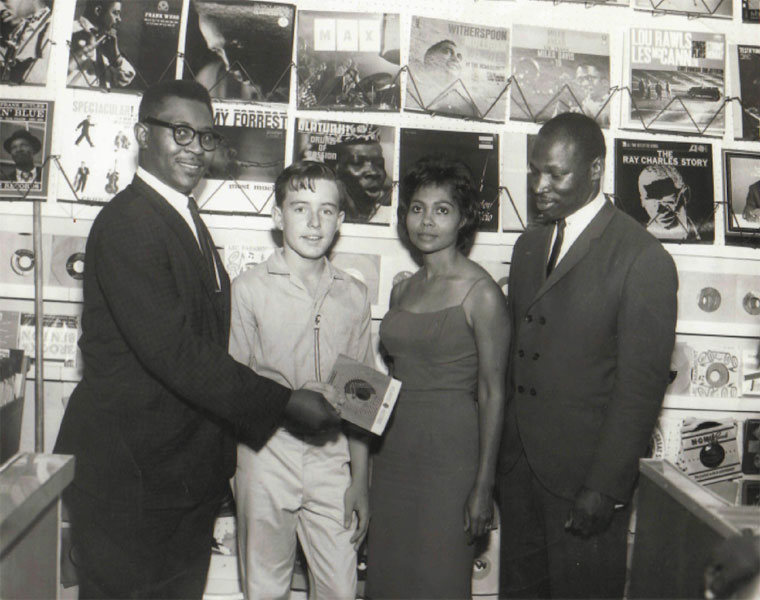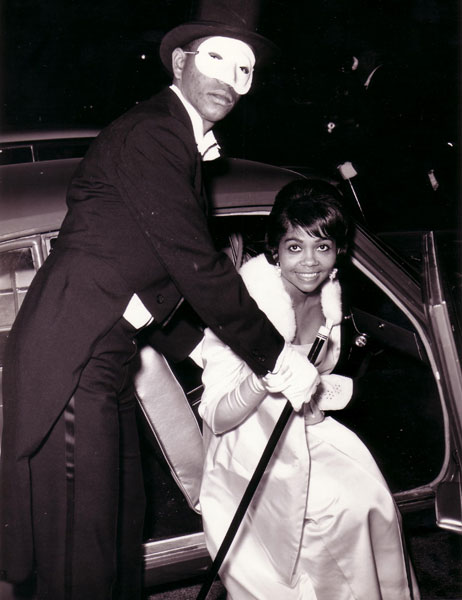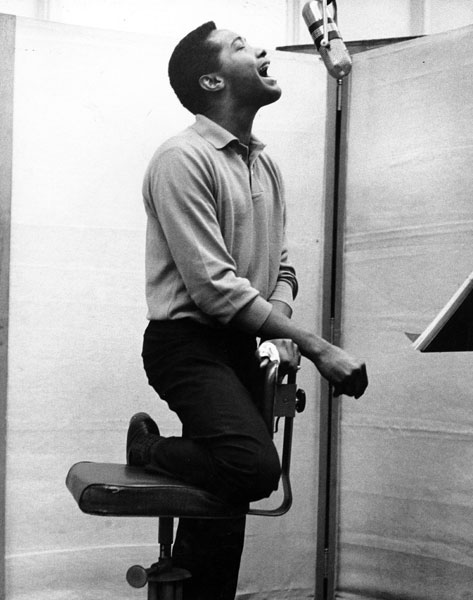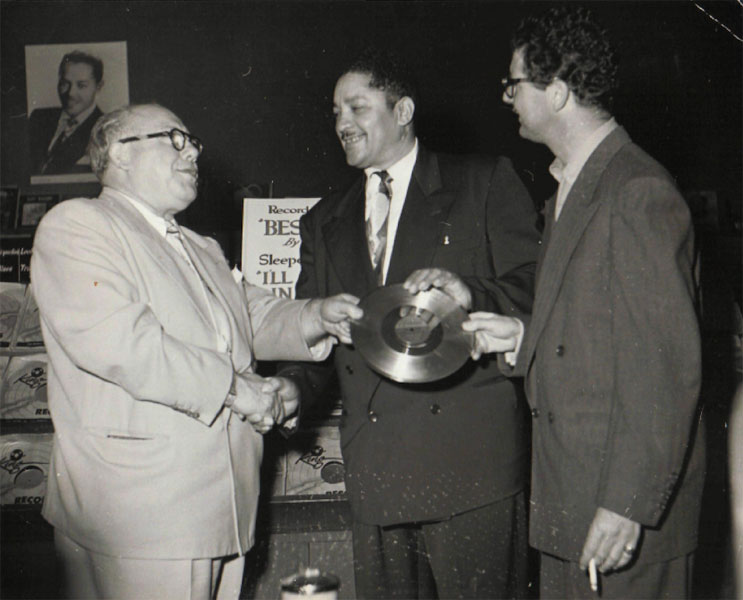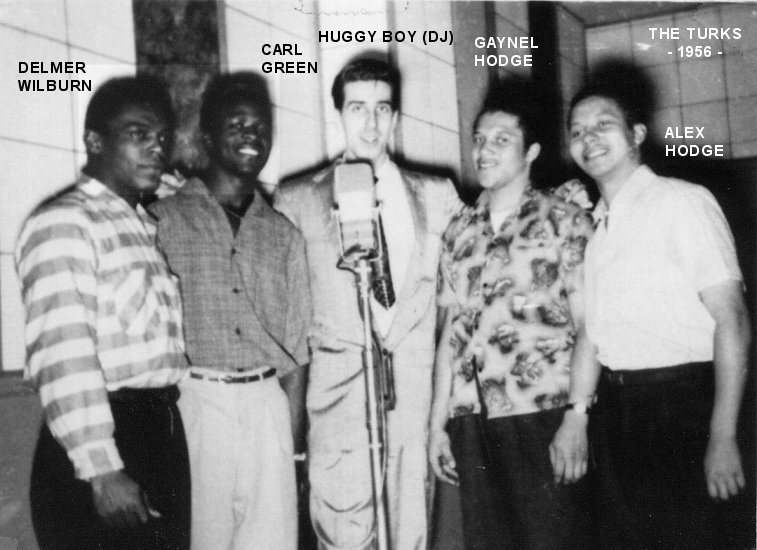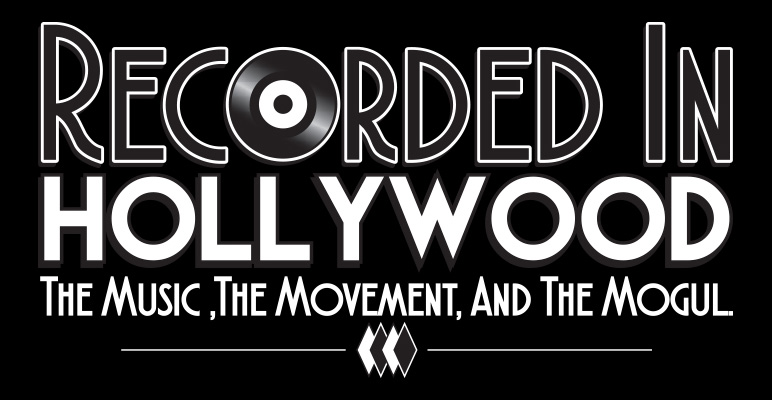
The Kirk Douglas Theatre
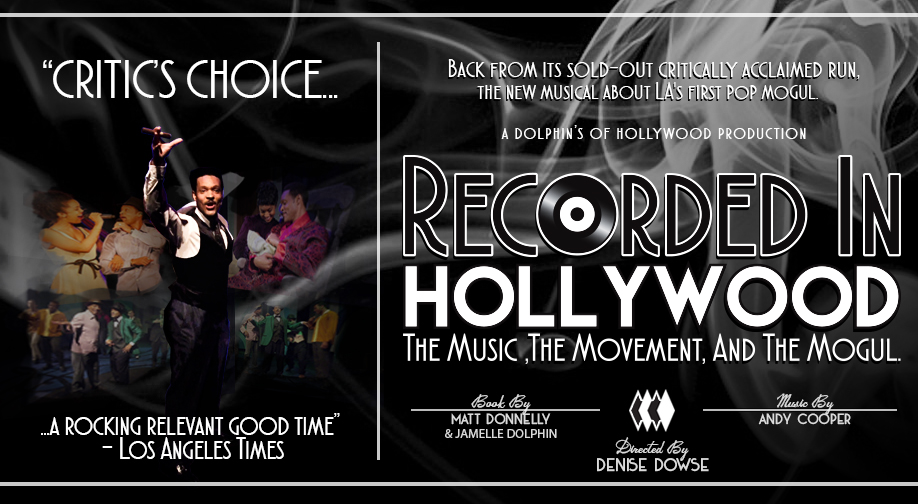



Legendary Los Angeles music producer John Dolphin, also known as Lovin’ John was one of the most well respected and successful black businessman in the 1940s and 50s well before Motown ever existed. An record label owner, music producer, publisher, record shop owner, radio broadcaster, etc.In 1948 he opened his World Famous Dolphin’s of Hollywood Record Shop in Los Angeles on the legendary Central Avenue, the music mecca on the west coast. His contributions to music and the formative years of Rock’n’Roll are often overlooked. John Dolphin was the epitome of a record businessman, a big man with a big cigar, and big talk. A music industry mogul with nearly every facet of the record business covered, had taken Los Angeles by storm and brought music to people of all races.
Dolphin’s of Hollywood soon became the most famous record shop in America and his radio show one of the most popular radio shows in Los Angeles. Popular recording artist such as Sam Cooke, James Brown, and even Elvis Presley would make appearances at the store and performed live on-air interviews as well as greet and signed autographs for customers. Dolphins of Hollywood record store was the first business to open 24 hours even on Sundays, also first to offer “Buy One Get One Free” for purchases of any record in the store.
Dolphin was the creator and innovator of the crossover music concept he knew white teenagers loved this music. He went on white radio station KRKD and played a black music format, marketing black music to whites. Broadcasting live from his shop on the local station of KRKD, in front of the huge glass window Mr. Dolphin had installed on the face of the store so that people on the outside could see in. Some of the most popular deejays found a home there in that front glass window. White kids would pack the Dolphin’s of Hollywood record shop in the all black neighborhood of South Central Los Angeles, nightly. Dolphin hired white deejays like Hunter Hancock and Dick “Huggy Boy” Hugg the most famous of all the deejays at Dolphins, who drew white teenagers to the shop in ever increasing numbers. Huggy Boy as deejay was the first to play and break the song “Earth Angel” by the Penguins and within weeks of its release it shot to the top of the charts.
Dolphin’s contributions to music spans from Jazz to Doo-wop R&B to Rock’n’Roll, with many great artist who careers he help, artist such as Sam Cooke, Jesse Belvin, Charles Mingus, Pee Wee Crayton, Billy Ward, The Hollywood Flames, Major Lance and many more. His contributions goes beyond music, his record shop would bring together all races during a time of segregation. Facing constant harassment from LAPD who’s chief William Parker did not like the mixing of races that was going on at the store and on Central Avenue. Dolphin organized a protest against the LAPD harassment of black business. His story have never been told and has been left out of history, a history that helped to create. Learn more about John Dolphin through the book The John Dolphin Story and this fabulous new musical RECORDED IN HOLLYWOOD.
Old School Pics
More Info

THE RECORDING OF “EARTH ANGEL”
“Earth Angel” by The Penguins
“Earth Angel” by The Penguins, recorded in September 1954, has sold in the millions over the last 45 years and is still one of the most popular records of all time. It is consistently near the top of New York radio station KCBS’s annual poll of favorite oldies. The song evolved through several Los Angeles groups and artists before The Penguins finally committed it to tape in Ted Brinson’s garage studio in the back of his house at 2190 W. 30th Street in South Los Angeles.

Dick “Huggy Boy” Hugg, DJ Introduced White L.A. Listeners to Rhythm & Blues
Huggy Boy and Dolphin’s of Hollywood
Disc jockey Huggy Boy arrived in L.A. in about 1945, signed on the air over KRKD radio out of the window of the Dolphin’s of Hollywood Record Shop on Vernon Ave., “20 magic steps west of Central Ave” in late 1951 or early 1952.

Leon H. Washington Jr. (1907-1974)
Founding publisher of the Los Angeles based African-American newspaper, the Sentinel, Leon H. Washington Jr. was born in Kansas City, Kansas on April 15, 1907.
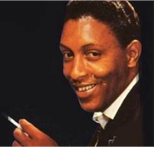
Jesse Belvin: The Most Gifted of All
By Norman (Otis) Richmon
The legendary Etta James was high on Jesse Belvin. She bluntly called Belvin, “The most gifted of all…even now I consider him the greatest singer of my generation. Rhythm and blues rock and roll, crooner, you name it. He was going to be bigger than Sam Cooke, bigger than Nat Cole.”
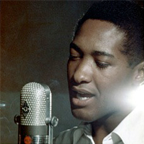
Sam Cooke: King of Soul
Songwriter and performer Sam Cooke was one of the most popular and influential black singers to emerge in the late ’50s, successfully to synthesize a blend of gospel music and secular themes and provided the early foundation of soul music. Cooke’s pure, clear vocals were widely imitated, and his suave, sophisticated image set the style of soul crooners for the next decade.











